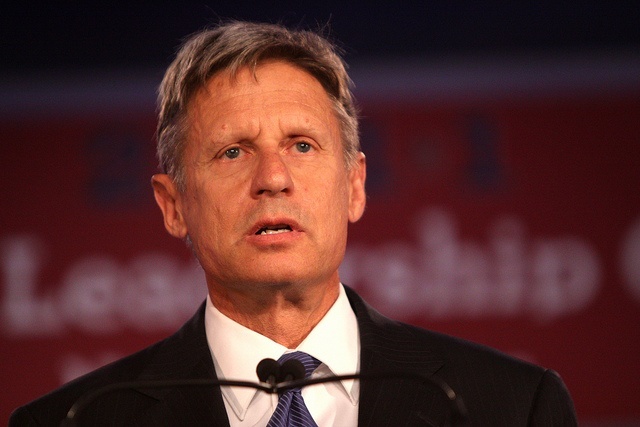
Third Party Presidential Candidates Continue Fight to Get Names on Ballot
2012 Election Access: Democracy, elections, and voting at Democracy Chronicles
Check out these four posts from election expert Richard Winger’s Ballot Access News on third party Presidential candidates’ battles to have their names appear on election ballots:
Dubuque, Iowa Telegraph Herald Editorial Praises Secretary of State Matt Schultz for Keeping Gary Johnson on Ballot
The September 3 Telegraph Herald of Dubuque, Iowa, has an editorial, praising Secretary of State Matt Schultz for voting to keep Gary Johnson on the ballot. Schultz is a Republican, and the editorial says Schultz deserves credit for voting in favor of voting rights, and against his own party. Unfortunately the newspaper does not permit free viewing of its content on-line, so no link to that editorial is possible.
Virginia Republican Party Asserts that Virgil Goode Petition is Flawed:
The Virginia Board of Elections has said that the petition to place Constitution Party presidential nominee Virgil Goode on the ballot has enough valid signatures. The petition has more than twice as many signatures as are required.
However, the Virginia Republican Party has looked at the petition and asserts that it should be rejected. One basis for the Republican Party’s statement is that Virgil Goode himself got 3 signatures on one particular day on his own Virginia petition, yet the party claims it has proof he was physically in Alabama that same day. Goode was in Alabama part of that day, but he got home to Virginia and collected a few signatures that evening.
Another basis for the Republican Party’s claim is that one circulator collected approximately 250 signatures in one day. The Republican Party claims this is impossible. Actually, there are professional petition circulators who have collected as many as 600 or 700 signatures in one day. Some petitioners are very good, and when they are in a high-traffic location, they can collect more than 500 in a single day.
Twenty States Still Don’t Know Which Presidential Candidates Will Appear on November Ballot
The presidential ballot is still not settled in twenty states. States in which the deadline for independent or minor party presidential candidates to file lies in the future are Alabama, Arizona, Hawaii, Kentucky, Louisiana, Mississippi, Nebraska, North Dakota, and Rhode Island.
States in which the deadline has passed, and in which certain parties have submitted petitions, but the petitions haven’t been checked yet, are Connecticut, New Hampshire, Virginia, and Wyoming (the only petition that Virginia hasn’t checked yet is the Jill Stein petition). Also Arkansas already preliminarily rejected some petitions, but some of the groups that submitted them are working to show that the original determination was erroneous.
States in which courts may either put a presidential candidate on, or take him off, are Georgia, Iowa, Michigan, Oklahoma, Pennsylvania, and Vermont.
Ohio Voters Who Contested Gary Johnson Ballot Placement Withdraw their Challenge
On September 1 (Saturday), the Ohio voters who challenged Gary Johnson’s placement on the general election ballot withdrew their challenge. They did not explain why they withdrew. Thanks to Gary Sinawski for this news.
In a slightly related development, on August 31, the U.S. Court of Appeals, 6th circuit, dismissed the Ohio legislature’s appeal of the 2011 U.S. District Court decision that put the Libertarian Party on the ballot for 2012. The 6th circuit said the case is moot.
Ohio has now been without a constitutional ballot access law for newly-qualifying parties for six full years. It will be interesting to see if the 2013 session of the legislature passes a valid law. According to 52 court precedents from around the country, petition deadlines as early as March are unconstitutional. Yet in all six years, there has been no bill introduced in the Ohio legislature to set a petition deadline for newly-qualifying parties that would be upheld. The only reasonable solution is to eliminate the requirement that newly-qualifying parties must nominate by primary.
Very few other states requires that newly-qualifying parties must nominate by primary, as a condition of having their nominees on the general election ballot with the party label. Ohio has a strong preference for an early primary, especially in presidential election years. If Ohio were willing to hold its congressional/state office primary in the late summer, the problem would be easier to solve, but given the state preference for an early primary, the state needs to exempt newly-qualifying parties from having a primary. 2012 Election Access
Leave a Reply